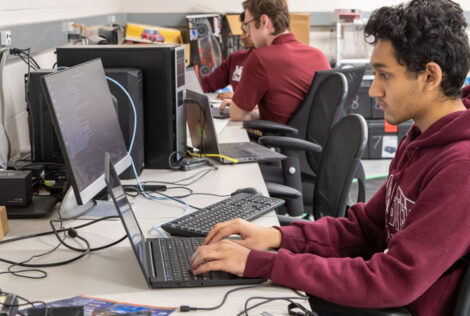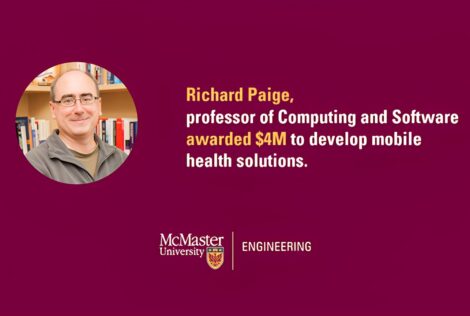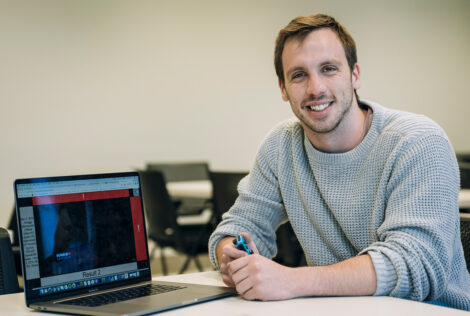

For the first time since its establishment in 1998, the ETAPS Conferences will be hosted outside of Europe, with McMaster University preparing to welcome hundreds of software sciences researchers to its main campus in Hamilton.
ETAPS, a confederation of four conferences — ESOP, FASE, FoSSaCS, and TACAS — attracts over 500 participants annually and enables networking with researchers across various disciplines in the field. These conferences cover a wide range of topics, including theoretical foundations, programming language developments, compiler advancements, analysis tools, formal approaches to software engineering, and security.

“Hosting ETAPS at McMaster is a tremendous honour,” says Mark Lawford, Director of the McMaster Centre for Software Certification (McSCert), and Professor of Computing and Software. “We are thrilled to welcome influential voices in software engineering and computer science to our campus, showcase our cutting-edge research centres and infrastructure, and offer our faculty and student researchers the chance to learn from global leaders.”
The event, taking place from May 3 to 8, will feature a blend of presentations, panel discussions, and keynote speaking sessions. Daily themes will include probabilistic programming, software verification, quantum computing and GPU, semantics, static analysis, AI software and quality, games and logics and more.
Invited speakers include Amal Ahmed (Northeastern University, USA), Suguman Bansal (Georgia Institute of Technology, USA), Matthew B. Dwyer (University of Virginia, USA), José Meseguer (University of Illinois Urbana-Champaign, USA), Arun Ross (Michigan State University, USA), and Ina Schaefer (Karlsruhe Institute of Technology, Germany).
We are thrilled to welcome influential voices in software engineering and computer science to our campus, showcase our cutting-edge research centres and infrastructure, and offer our faculty and student researchers the chance to learn from global leaders.
Created in 2009, McSCert has been elevating McMaster’s reputation in software innovation. Its focus on improving the practice of software engineering for critical systems involves collaborations with industry partners to research how to cost effectively produce and certify the safety of software intensive systems, ensuring that bugs in critical systems like pacemakers or car braking systems are avoided through processes and tools that support established safety, security and reliability standards.
In 2024 McSCert received the IEEE Technical Committee on Software Engineering Synergy Award that is granted to an organization that stands as a model in the software engineering community of effective partnership between industry and universities.


